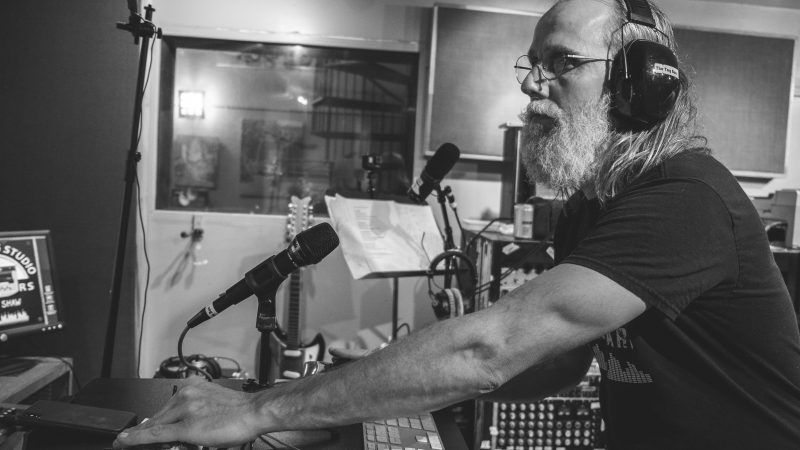Tennessee Court Says Music City Can Keep Cracking Down on Home Recording Studios
A Davidson County judge ruled Tuesday that Nashville's ban on home businesses servicing clients on site is constitutional.

Music City can continue its crackdown on home music studios thanks to a new ruling from the Davidson County Chancery Court in Tennessee upholding a Nashville law that prohibits home business owners from serving clients on site.
The law has been a burden on the city's numerous home studio owners who, thanks to the Nashville Metro government's ban on client visits, are technically unable to charge musicians to record in their home studios. Most studio owners are able to fly under the radar. Those who are reported to Metro can have their businesses upended overnight.
That would include Lij Shaw, a Grammy Award-winning music producer profiled by Reason in April.
For years, Shaw ran his Toy Box Studio recording business out of his Nashville home without incident. In 2015, he was hit with a cease and desist letter from Metro, which demanded that he stop receiving clients at his home, shut down his promotional YouTube channel, and strip information about his business from his website or else be fined.
In 2017, Shaw and Pat Raynor, whose home salon business also ran afoul of Nashville's client ban, sued the Nashville Metro government. The two were represented by the Institute for Justice, a public interest law firm, and the Beacon Center, a Tennessee free market think tank.
Their lawsuit argued that because Nashville couldn't show any actual harm Shaw or Raynor caused by receiving clients at their home, the city had no legitimate government interest in enforcing its ban on client visits. That ban, their lawsuit argued, was therefore irrational and violated the Tennessee Constitution's protection of one's right to earn a living.
In an opinion published Tuesday, however, Chancellor Anne Martin agreed with Nashville's argument that because one could imagine potential harms coming from allowing home businesses to service clients on-site, the Metro government's rules were rational, and therefore constitutional.
Shaw and Raynor's businesses, Martin wrote, "are like any others in that if the public is allowed to come to their residences as customers, it could disturb the residential nature of their neighborhoods, as well as foment a potential host of other problems."
"The ruling is tantamount to one that concludes that facts cannot override imaginary harms when it comes to economic rights," says Braden Boucek, an attorney with the Beacon Center. "Under our constitutional structure where the government is one of powers few and enumerated, that's not how it's supposed to be."
"Lij and Pat have a constitutional right to use their homes to earn an honest living," Institute for Justice attorney Keith Diggs said in a statement. "Today's ruling ignores Nashville's admission that Lij and Pat never threatened public health or safety. We will keep fighting for Lij and Pat until this unconstitutional law is overturned."
The Institute for Justice and the Beacon Center plan on appealing Tuesday's ruling. Until then, Nashville's music producers and other home businesses will have to hope and pray that code enforcement doesn't choose to single them out next.
Rent Free is a weekly newsletter from Christian Britschgi on urbanism and the fight for less regulation, more housing, more property rights, and more freedom in America's cities.


Show Comments (31)